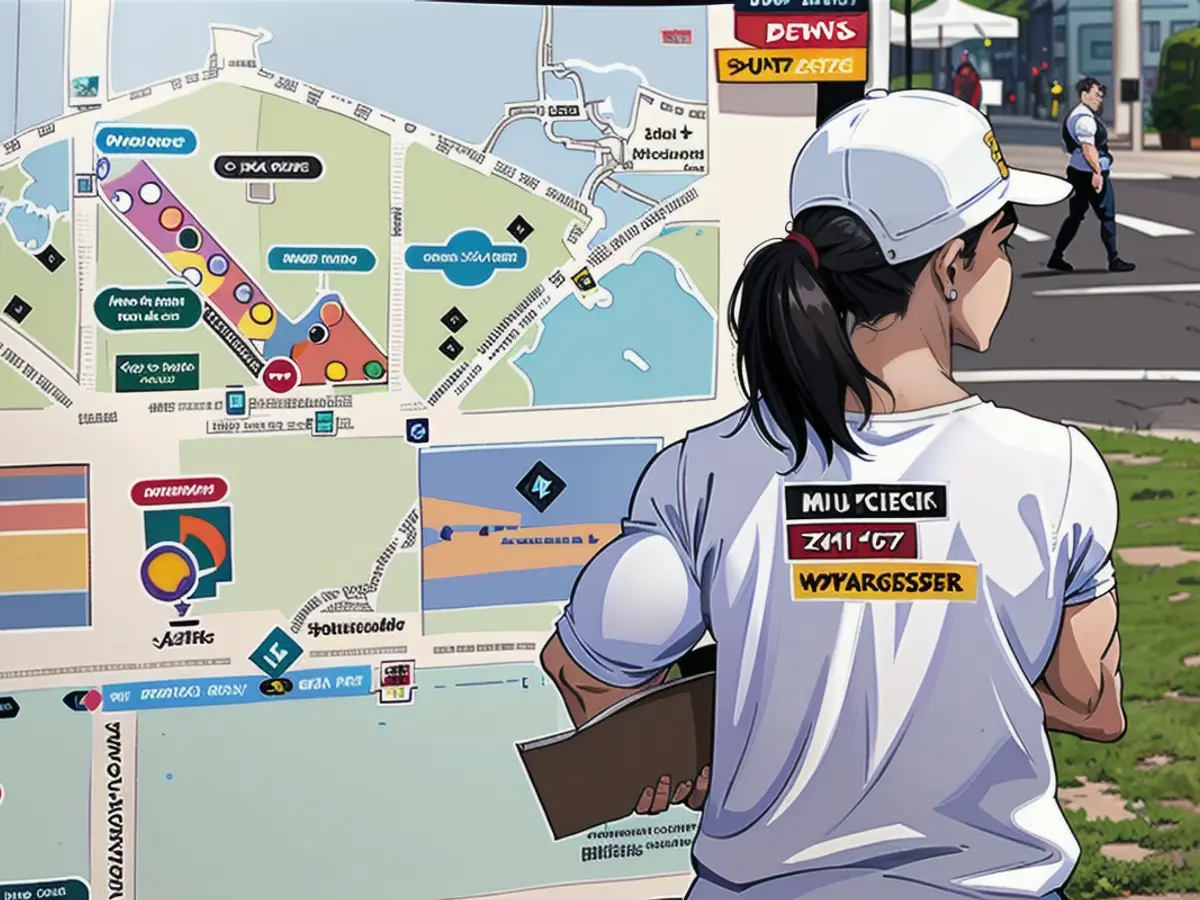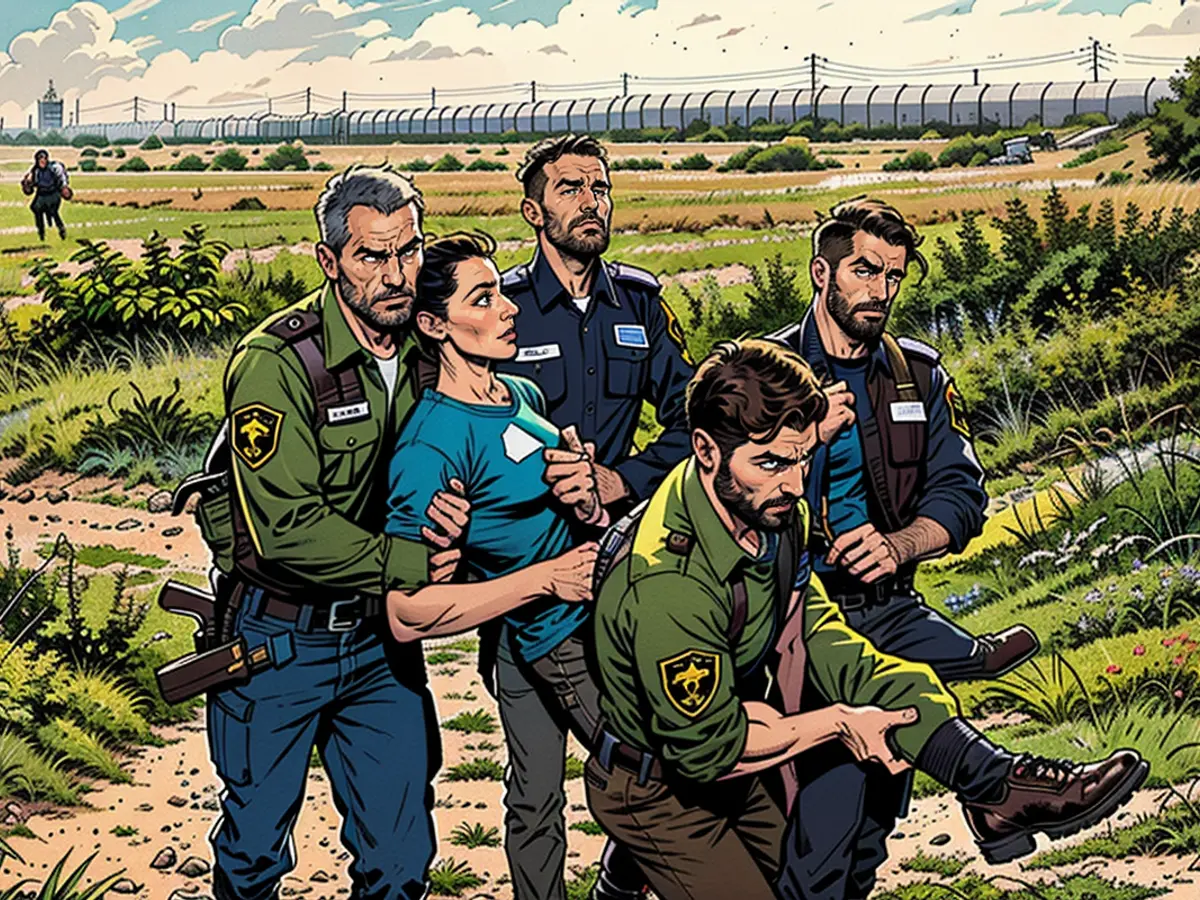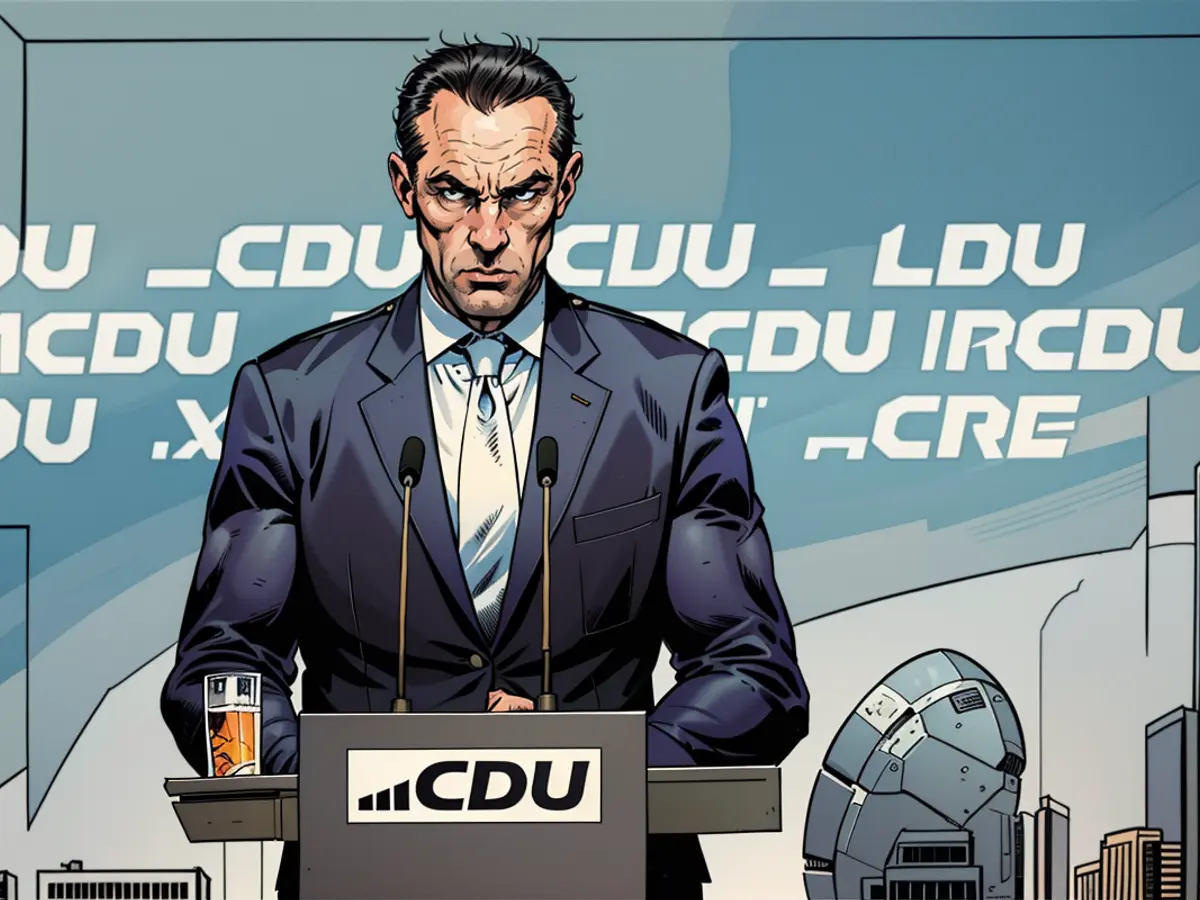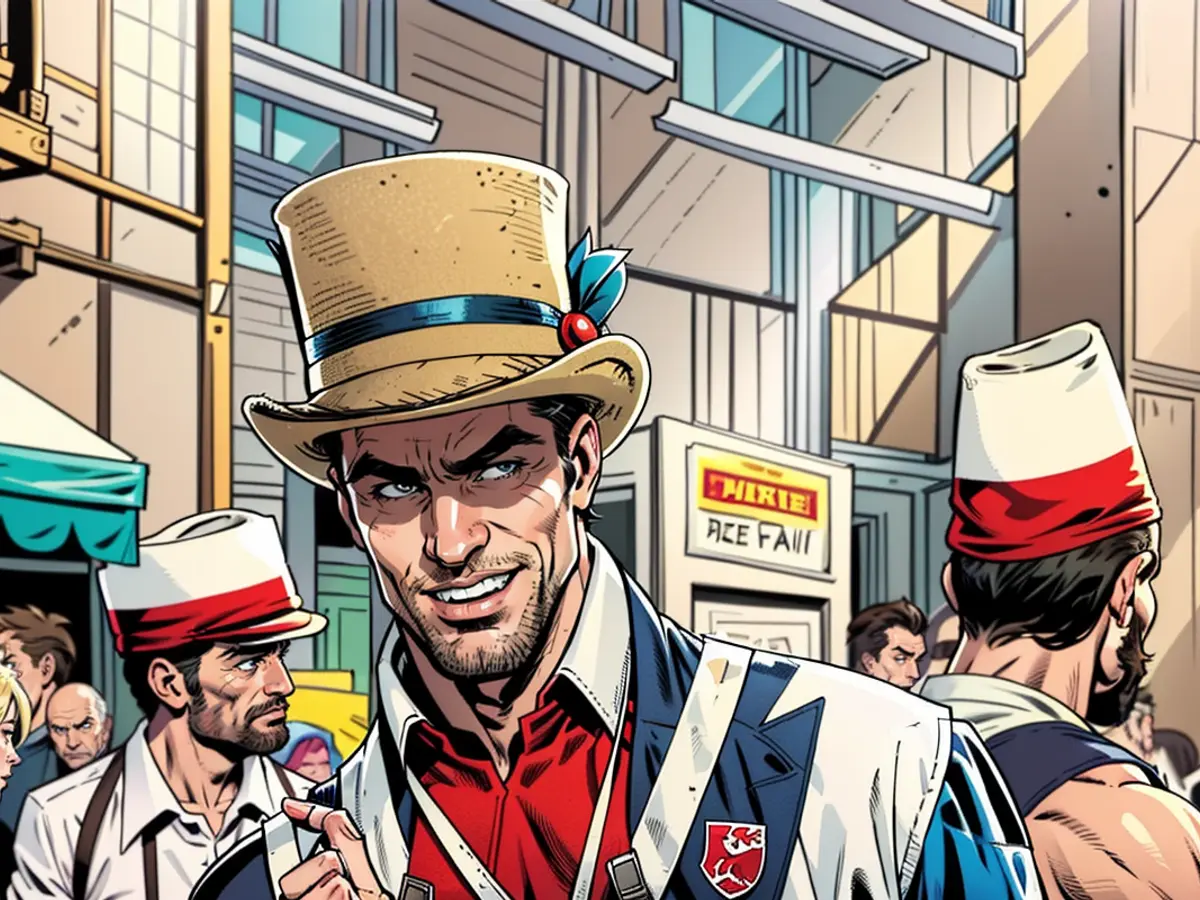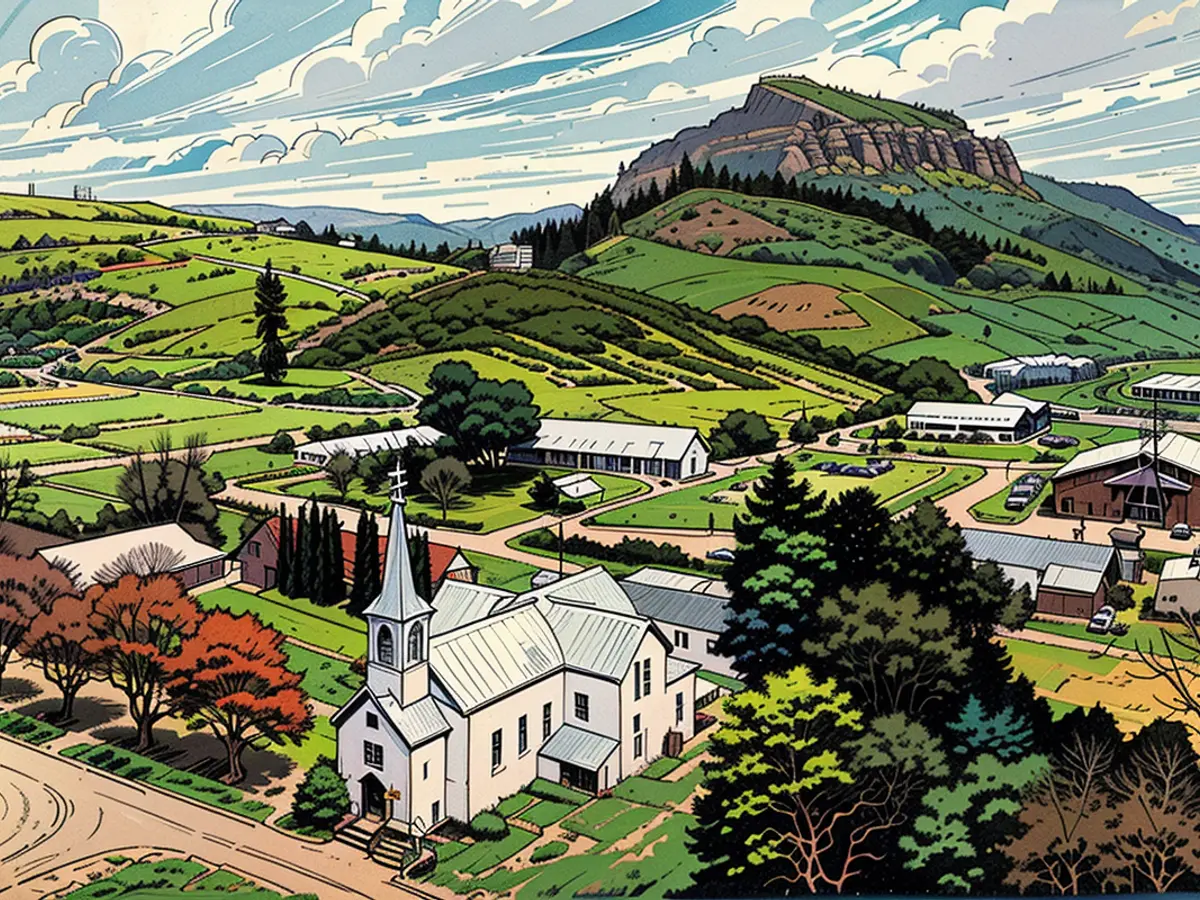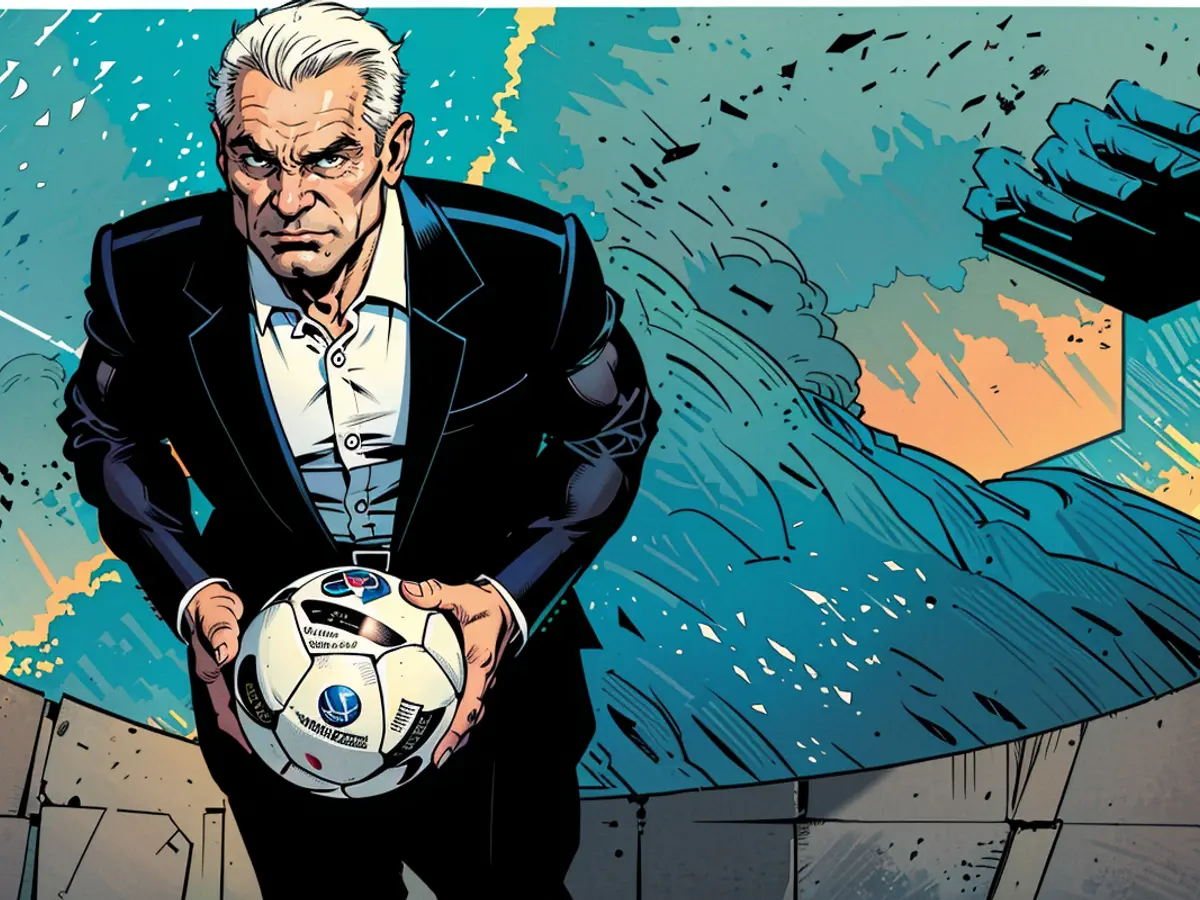Democracy requires active participation.
Germany is commemorating 75 years of the Constitution with festive events in Berlin and Bonn. High-ranking politicians like Olaf Scholz address questions from the audience, focusing on pressing issues such as a shortage of skilled workers, climate change, and support for Ukraine.
A large group of people gathers in front of a grandstand in the Reichstag. A colored cord winds around families with children and elderly couples. A few restless individuals inquire from the security guards about the location of the dome. The President of the Bundestag, Bärbel Bas, then appears onstage. Grateful for the applause beforehand, she welcomes everyone to the Bundestag: "Dear friends of democracy, I'm delighted that you're joining us!"
Three quarters of a century ago, from the night of May 23-24, 1949, the Constitution took effect. It formed the basis for the Federal Republic of Germany as a free, democratic, and social constitutional state. A state ceremony with invited guests will take place in Berlin on Thursday, with the Federal President paying tribute to the Constitution. The Festival of Democracy is taking place in Berlin and Bonn this weekend.
On Sunday, French President Emmanuel Macron will attend the Berlin Festival of Democracy. A major concert will be held on one of the stages on Sunday evening, with musicians like Fantastischen Vier, Lena Meyer-Landrut, Sebastian Krumbiegel, Vanessa Mai, and Zoe Wee set to perform. The festivities will conclude with fireworks and the music of Alle Farben.
The centerpiece of the celebration

After her brief opening speech on Friday, Bas leads the visitors through a display that details the life stories of the parents of the Constitution. "Come with me," says Bas to a slightly hesitant visitor. Other visitors approach the President of the Bundestag on their own to take a photo with her. Karlchen and Karla, the two gray bird mascots representing the federal eagle, are also popular.
In the Reichstag building, a short walk and a couple of long corridors take visitors to the "candidate," as Bas calls this showcase. The original Constitution from 1949 is on display in a clear case. The original rarely leaves the parliamentary archives, only appearing when the Federal Chancellor or Federal President is sworn in, remarks Bundestag archivist Angela Ullmann.
As Bas approaches the display case in the central library, she becomes nostalgic, commenting, "But the fingerprints aren't mine." Many people want their photo taken with Bas in front of the original Constitution. Thirteen-year-old David from Rhineland-Palatinate is among them. With his mom and sister, he's traveled six hours by high-speed train to Berlin not only to celebrate democracy but also to see the new German champions, Bayer 04 Leverkusen, face off against 1. FC Kaiserslautern in the DFB Cup final at Olympic Stadium on Saturday. "It's a rare opportunity to be here in the Bundestag. You don't get to do that every day," says David. His mother, Vera, adds, "It's the foundation for our way of life."
Engaging in conversations with citizens
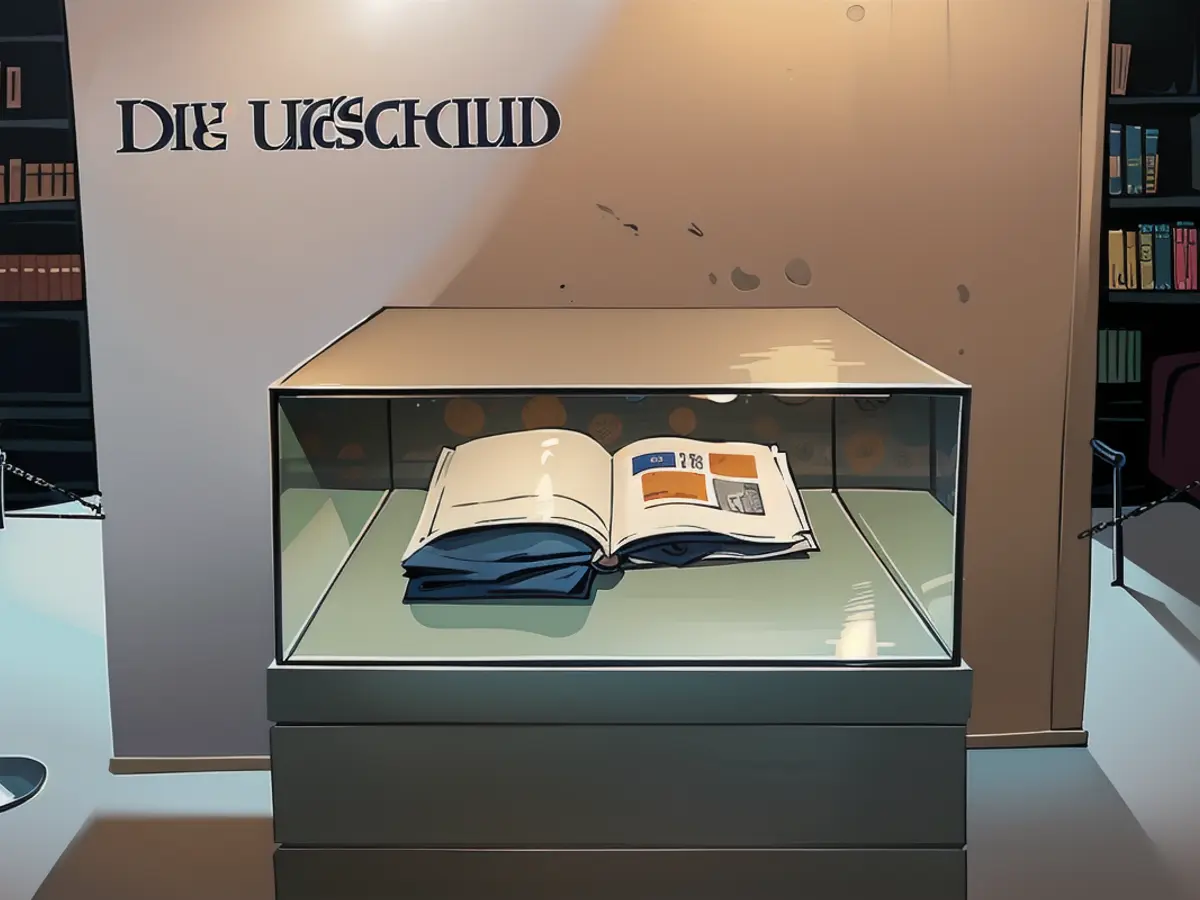
A few hundred meters away, at the square in front of the Chancellery, representatives of the constitutional bodies engage in dialogue with attendees: in addition to Bas, these are President of the Bundesrat Manuela Schwesig, Federal Constitutional Court President Stephan Harbarth, and Federal Chancellor Olaf Scholz and Vice Chancellor Robert Habeck.
Scholz will begin the session on Friday afternoon. Cultural ambassadors, sports figures, and community members number around one hundred, observing a small round stage. The conversation circle is intended to focus on volunteer work as a means of strengthening society. However, the audience frequently shifts the dialogue to other challenges: climate change, energy supply, or labor shortages.
A young man named Ostap, aged 19, queried the Chancellor regarding the absence of Taurus deliveries in Ukraine. Ostap lives in Berlin, having arrived from Ukraine two years back. During an interview with ntv.de, Ostap disclosed that he understood Chancellor's stance on Taurus deliveries, stating they had no intention of enhancing the war. Similarly, 23-year-old Viktoriia and 21-year-old Andriana concurred with him. The latter two had also relocated to Germany in the aftermath of the Russian assault on Ukraine.
Following their introspective chat with the Chancellor, Ostap, Viktoriia, and Andriana relaxed and walked along the festival route that stretched between the Reichstag building, Paul Löbe House, and the Chancellery. Andriana, who had just concluded a two-month internship with a Bundestag member, mentioned her appreciation for German politics. She shared her surprise at the transparency in Germany, noting that in Ukraine, one could not imagine engaging with the Federal Chancellor or visiting such places. After their sojourn in Germany, these three Ukrainian citizens have become ingrained in the country, feeling like they belong. On this festive day, they were enthusiastic about participating in the celebrations as well.
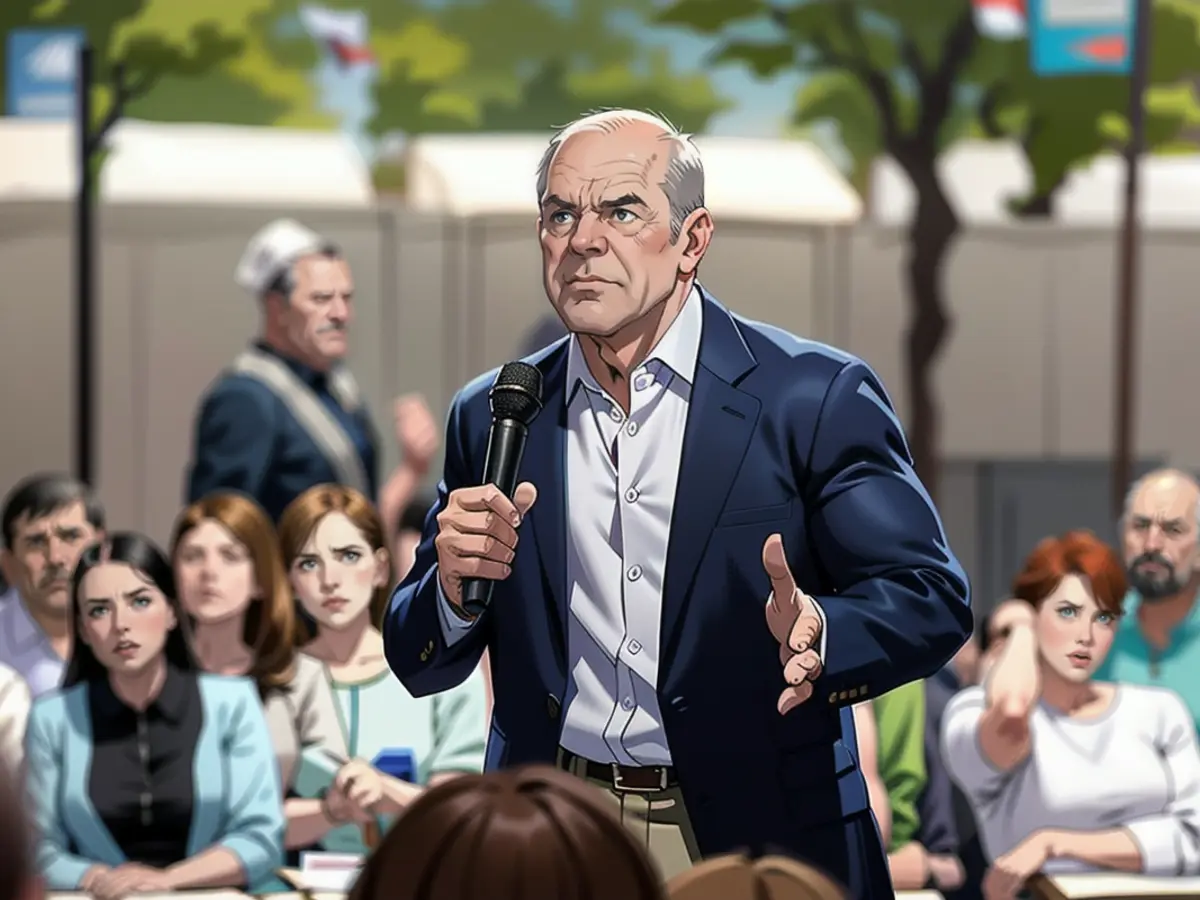
Matthias Keussen, a 32-year-old Vice President of soccer club Athletic Sonnenberg e. V., delivered one of the four orations during the dialogue session. A statement from Chancellor Scholz regarding free speech resonated with him. Scholz declared, "In Germany, you can express your opinions openly. In fact, it's free to even say: you can't say what you think." Keussen commended this, commenting, "We stay right here in Germany, where we can have these dialogues with the Federal Chancellor."
Julian Lagemann from Cologne concurred with him, reflecting on this jovial day. Although they were in a celebratory disposition, they perceived the danger posed by anti-democratic and populist factions. Keussen expressed anxiety over the potential danger these extremists could pose to democracy. "Democracy isn't merely an observational activity. When only a few partake and a fraction of them seemingly act against their own team, democracy becomes vulnerable," Lagemann said. He identified the unnerving situation where people only watch while right-wing extremists gain traction.
As the evening progressed, bustling crowds started converging around the Bundestag in Berlin. Various state booths displayed their unique offerings, and federal ministries' booths lined up in front of the Federal Chancellery. A retired couple, Horst and Doris, sat in the shade of a tree adjacent to the Federal Ministry of Defense hut. Both having spent most of their lives in the former German Democratic Republic (GDR), Horst exclaimed, "There is no East and West here anymore." He expressed contentment with the transition of the Basic Law into the all-German constitution in 1990, noting it needed some adjustments. However, his wife, Doris, who had been a young woman in the GDR, admitted to not comprehending the importance of the Basic Law initially. Yet, with time, she discovered its significance - especially for women.
The couple moved towards an illustrious bratwurst stand, as they had already gained some respite.
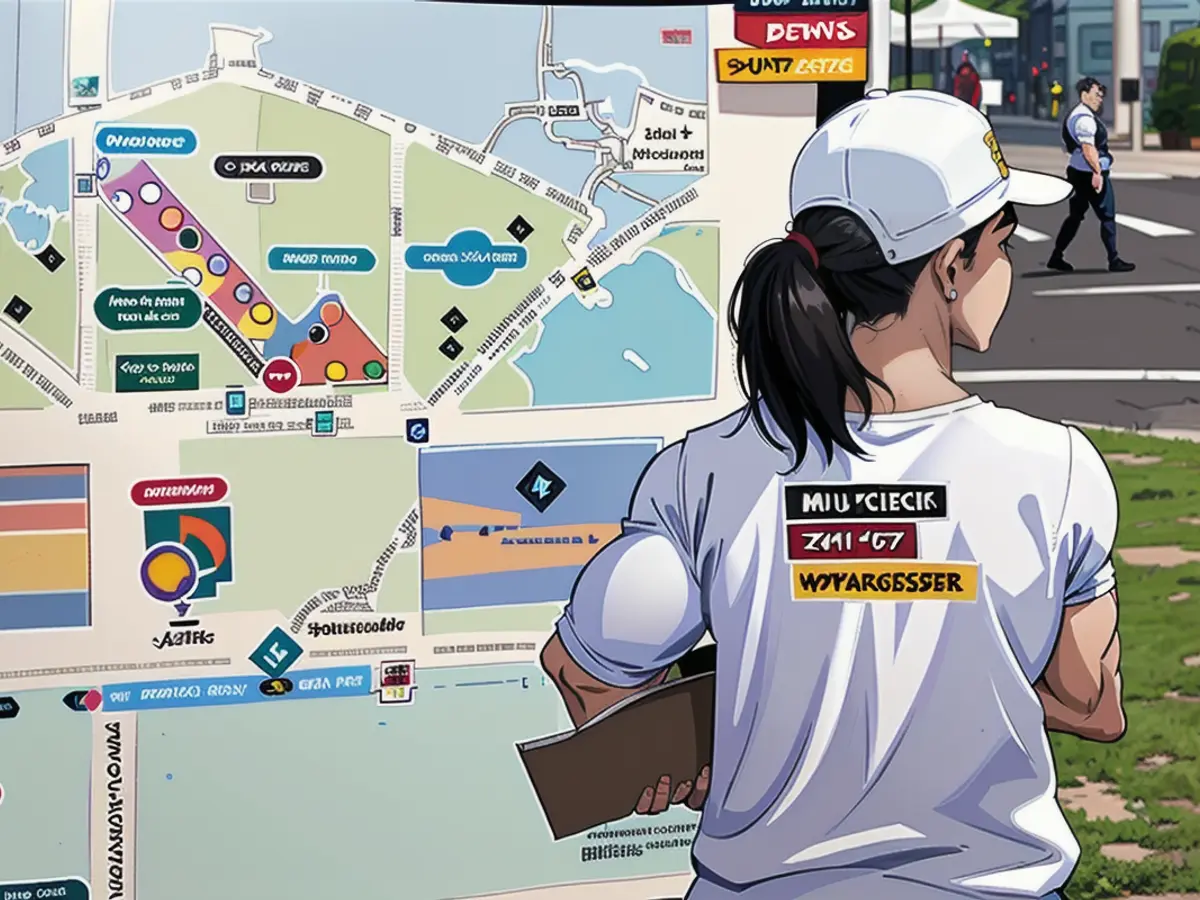
Read also:
- Year of climate records: extreme is the new normal
- Precautionary arrests show Islamist terror threat
- UN vote urges Israel to ceasefire
- SPD rules out budget resolution before the end of the year
Source: www.ntv.de
